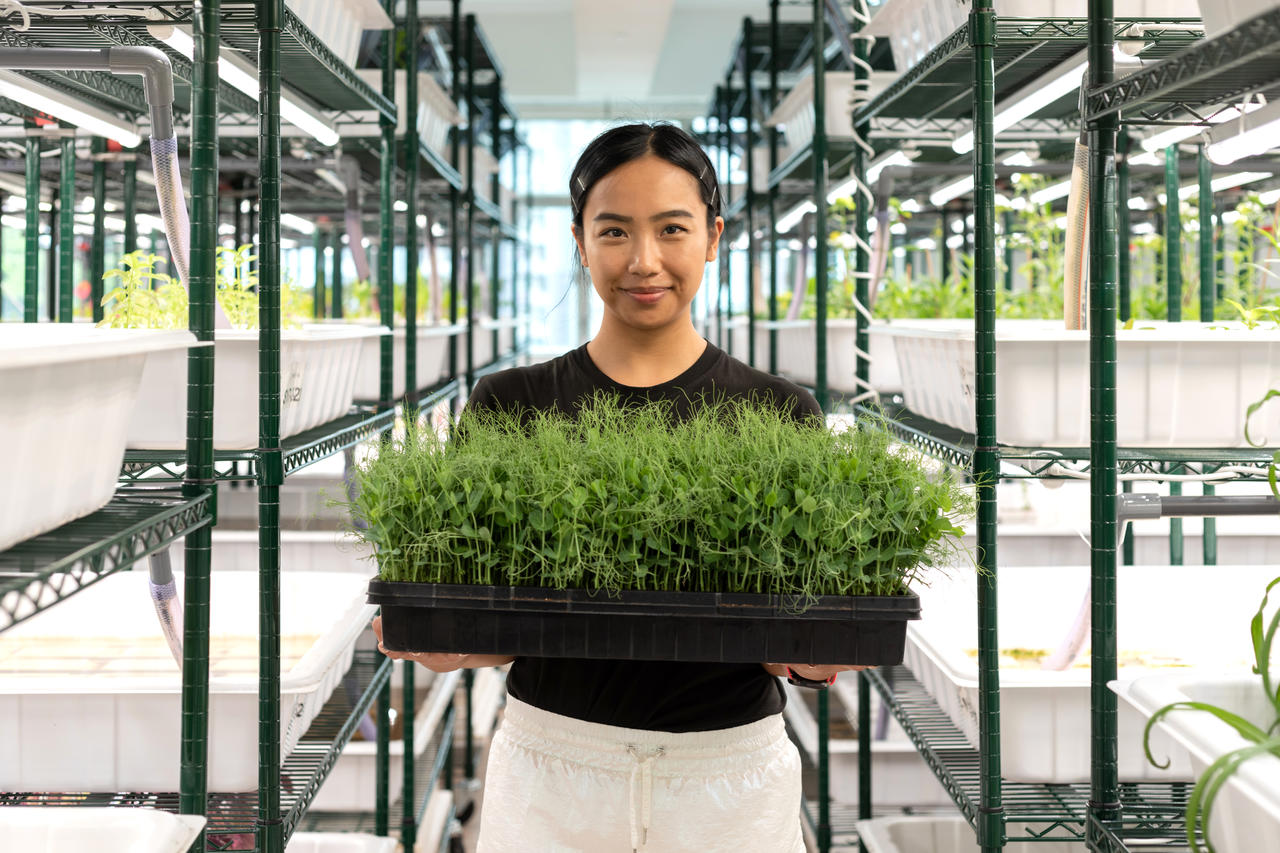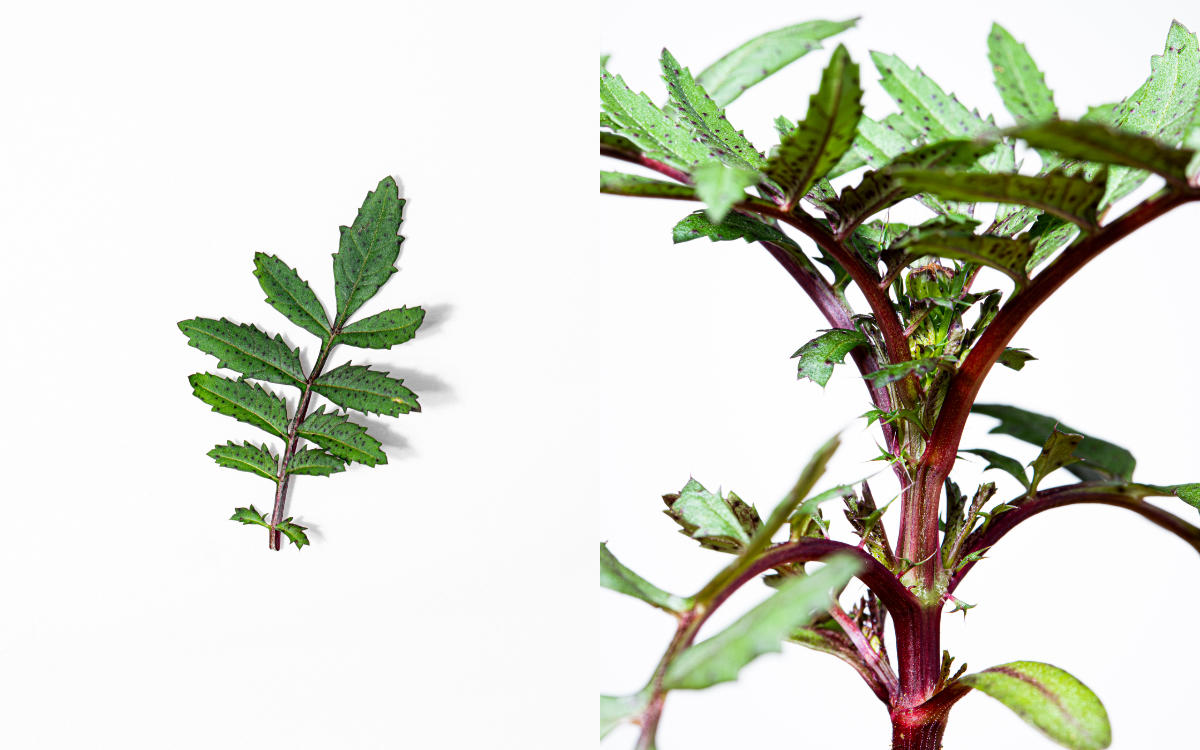
COMMON FARMS
对话共同创始人与城市农夫 —— Jessica Fong
在我们第二集的连卡佛播客栏目中,我们的内容总监Christel与 Common Farms 的创始人之一 Jessica Fong 展开对话。
Common Farms 是一家创新了香港室内及都市耕种模式的小型企业,也是香港本土农产品的主要提供者之一,这意味着它们同时种植和销售微型蔬菜、食用花卉、种子及农具等。您可能会在像新式巴黎小酒馆 Belon、 现代英式餐厅 Roganic、 Giando 意式餐厅及酒馆、位于 Soho 地区的 Ho Lee Fook、专门做抹茶的 Matcha-Li以及各种著名私人厨师的厨房等地方找到Common Farms 的产品。
请收听我们播客的第2集节目,或阅读以下的文字内容,一同探索三个年轻人是如何决定播种一些“种子”,并取得了哪些收获。
CHRISTEL: 你好 Jessica。
JESSICA: 你好。
CHRISTEL: 欢迎来到连卡佛播客。
JESSICA: 谢谢。
CHRISTEL: 我先来介绍一下 Jessica,好让大家知道我和她的深厚友情。
JESSICA: 我正在回想我们相识的时间。
CHRISTEL: 但我们相识已久了。我记得多年前,我们初次在巴黎相遇,然后当我初次抵达香港时我们又偶遇了,距今也已好久了。请你详细讲述一下,好让听众们了解你是如何前往巴黎的,然后你如何……
CHRISTEL: Jessica,介绍一下你自己。你是谁?
JESSICA: 我长话短说。我尽量长话短说,我们是在我住在巴黎的时候相识的。我当时正在巴黎学习。
CHRISTEL: 你当时在学什么呢?
JESSICA: 我当时正在读商科双学位,主攻通讯。同时我也曾在时装领域学习和工作过,因为我想我需要接触商务领域,但我专门来到巴黎想涉足时装界。但几年之后我发现时装界并不适合我,我喜欢上了建筑。然后我爸爸让我回到香港,我便回到了香港。而我去巴黎是我对我妈妈让我去加拿大的反抗,我说“不,因为这是你让我去做的。” 而去英国是因为香港学生太多了,我觉得我的才能会被埋没,而我不希望这样。去澳大利亚的原因也是如此,但美国是我真正想去的地方,但我就是想去巴黎生活。因为我们小时候爸爸曾带我们去过巴黎,那里是我很钟意的一座欧洲城市。我当时心里想,我一定要在那里生活。
但让我惊讶的是,我爸爸说:“听我说,我支持你去巴黎,因为我希望你能了解更多的文化。” 就这样我去巴黎待了一年,本打算待一年,结果待了四年。
CHRISTEL: 巴黎就是巴黎。
JESSICA: 嗯。
CHRISTEL: 那么,当你回到香港后做了什么? 只是想知道你是如何开始从事……
JESSICA: 我还是……我现在仍不知道我在做什么。可能我有点画地为牢,但我仍不知道哪些是未知的。但在我回来之后,我觉得很多人并不知道这一点,但我真心想帮助我爸爸的制造公司,因此我常常来到中国。而当企业面临破产时,我……我回来后非常迷茫。
我觉得我要进入公司帮助我爸爸,因为我年轻气盛,充满活力,我学到了很多。我有大学学历,所以我会进入公司,我知道我一定会的。当我不知道我在做什么或我想去哪里的时候,你要知道,我心中积怨甚多,非常沮丧和焦虑,百感交集。
这些情绪很难克服,而如果你的父母是很传统的中国人,尤为如此。但幸运的是,他们给了我很多空间让我决定我想做的事,让我自己去面对我会犯的错误。
我想很多人以为我会回来,好像我有一个银行账户等着我去花。真的不是这样的,我回来了,我甚至不知道我家庭面临着多么大的经济问题。正是因为这些原因我心中积攒了很多怨恨。而你知道,要想战胜这些情绪,只有试图解决所有问题。逐一发现并解决问题。这基本就是过去几年我的状态。和我爸爸一起工作让我意识到那并不是我想做的,那不是我能够带来价值的工作,也不是我的兴趣所在。但我想,改善我和他关系的理想方式便是从中抽身。然后我进入了餐饮业,对此我想每个人……
CHRISTEL: Hi Jessica!
JESSICA: Hey!
CHRISTEL: Welcome to the Lane Crawford podcast.
JESSICA: Thank you so much.
CHRISTEL: So, let me start by introducing Jessica and just letting you all know that I’ve known her for quite a long time.
JESSICA: I was trying to think when.
I remember we first met in Paris many years ago, and then we met again quite randomly in Hong Kong when I first arrived. So, if you can fill in and let anyone who’s listening know how you got to Paris and then how you kind of like –
CHRISTEL: Who are you, Jess? Who are you?
JESSICA: I’ll try to keep it short, but we met in Paris because I was living in Paris. I was studying in Paris then.
CHRISTEL: What were you studying at the time?
JESSICA: I was doing a double in business and communications with intention. I was studying and working in fashion as well, because I was like, “Oh I need to deal with the business component”. I was intentionally in Paris and wanting to work towards fashion. And then it wasn’t for me after, I think, a couple of years of that. Then I fell in love with architecture. My dad then pulled me back and that’s when I ended up in Hong Kong. Paris was because I was in my rebellious years and my mum told me to go to Canada, and I was like, “No! Because you told me to do that.” And then with the UK, because the population of Hong Kong students is just immense, I felt like I was going to be a small fish in a big pond – I did not want to do that. Same thing with Australia. The US was the only place I was really going to go to but I wanted to live in Paris because when we were younger, my dad took us there and it was my favourite European city. I was like, “I’ll just live there.”
And surprisingly enough my dad said, “You know what? I’m going to support you for that because I want you to gather more culture.” So, I went there for a year – well, intended a year, and it turned out to be four years. That was that, and Paris is great.
CHRISTEL: Paris is Paris.
JESSICA: Yeah.
CHRISTEL: So, when you moved back to Hong Kong, where did your path take you? Just to set up the backdrop of how you started coming from –
JESSICA: I still – well, I still don’t know what I’m doing. But I still don’t know what I don’t know. When I came back – I think most people don’t know this – it was with the intention to help my dad with his manufacturing business, so I ended up in China a lot. And the business was about to go bankrupt and it did…
I was so lost when I came back. I thought I was going to come in and help my dad and, you know, because you’re young and you’re dynamic and I had learned so much, I had graduated from college. So, I was going to come in, I knew what I was going to do; when I really didn’t know what I was doing or where I wanted to go. There was a lot of resentment, frustration and anxiety – just everything combined.
And it was really hard to navigate through it, especially when your parents are more traditional Chinese. But they did, to their credit, give me a lot of room to decide what I wanted to do. And it was for me to make the mistakes that I needed to make.
I think a lot of people thought I was coming back, that I had a bank account waiting for me to spend. I really didn’t have that. I didn’t even realise how much financial trouble my family was in. So… you build a lot of resilience through it. The only way to survive was trying to move through all the shit. Dig through and strip it one by one. That’s kind of where the past few years have been. So, working with my dad made me realise that’s not what I wanted to do, and that’s not where I can bring the most value. It’s not where my interest is at. But I think the best way of moving forward for my relationship with him was to remove myself. Then, I kind of ended up in the restaurant business, which I think everyone –
















